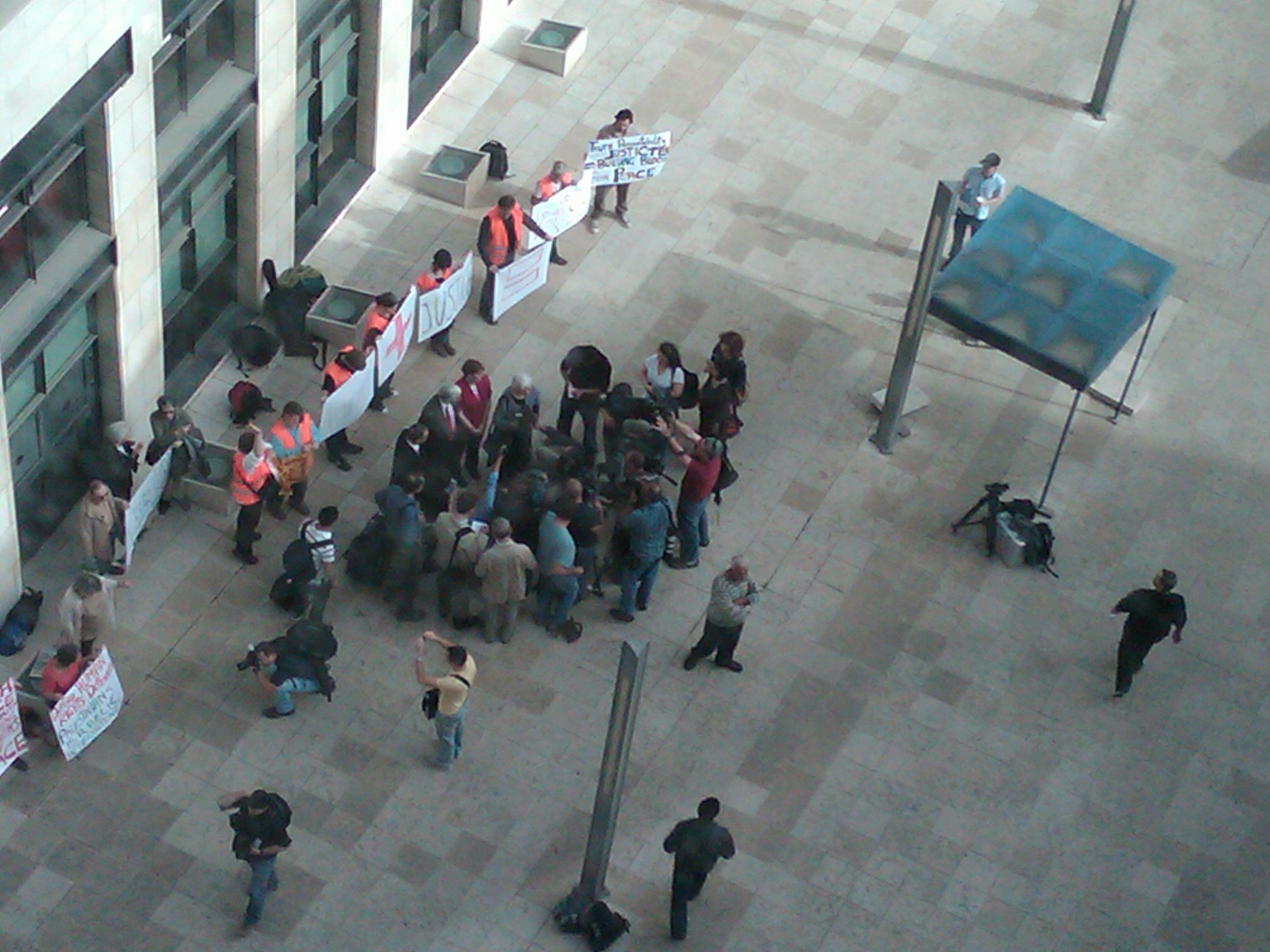Tag: Rachel Corrie
-
Autopsy doctor admits to violating court order in Rachel Corrie autopsy
Rachel Corrie Foundation 14 March 2010 For Immediate Release: Today 14 March 2010 the Haifa District Court saw the second full day of testimony in the civil lawsuit filed by Rachel Corrie’s family against the State of Israel for her unlawful killing in Rafah, Gaza. Rachel Corrie, an American human rights defender from Olympia, Washington,…
-
Israeli Court Begins Hearing Testimonies in the Unlawful Killing of 23 year old American Activist Rachel Corrie
Rachel Corrie Foundation 10 March 2010 For Immediate Release The Haifa District Court began hearing eyewitness testimonies today, March 10, 2010, in a civil lawsuit filed by Rachel Corrie’s family against the State of Israel for her unlawful killing in Rafah, Gaza. Rachel Corrie, an American human rights defender from Olympia, Washington, was crushed to…
-
Border Control / Biden and the bulldozer
Akiva Eldar | Ha’aretz 9 March 2010 U.S. Vice President Joe Biden, who arrived in Israel yesterday, didn’t look for camels among the cars on the road from Ben-Gurion International Airport to Jerusalem. In a Senate Foreign Relations Committee hearing held two years ago for the United States Ambassador to Israel, James Cunningham, Biden heard…

